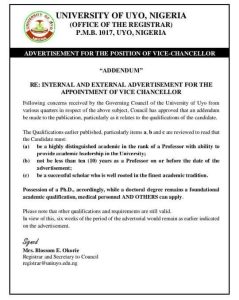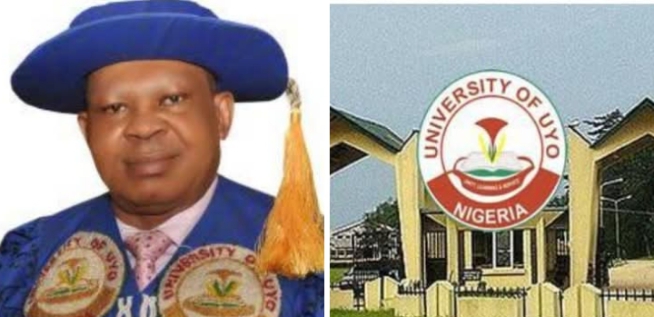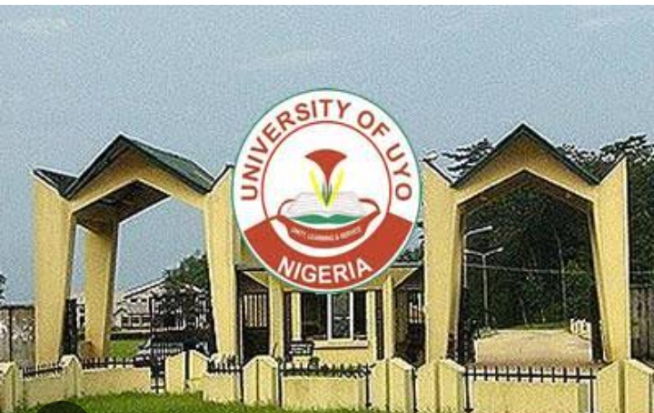By Our Correspondent
UYO — The embattled outgoing Vice Chancellor of the University of Uyo, Prof. Nyaudoh Ndaeyo, has suffered a major political blow following a decisive intervention by the newly constituted Governing Council chaired by Dr. Muiz Banire (SAN). In a significant move that signals the restoration of procedural integrity, the Council has ordered a sweeping review of the contentious advert for the appointment of a new Vice Chancellor, deleting several controversial clauses seen as tailored to favour a preferred successor.

The development, confirmed in a press release signed by the Registrar and Secretary to Council, Mrs. Blossom E. Okorie, comes after widespread public and institutional outrage over the initial advertisement issued under Prof. Ndaeyo’s watch. Critics accused the outgoing Vice Chancellor of attempting to rig the process by embedding technical clauses aimed at excluding credible contenders and paving the way for a handpicked loyalist.
The now-reversed version of the advert had introduced highly restrictive qualifications, particularly in items (a), (b), and (c), raising eyebrows among academics, alumni, and university stakeholders. The move was seen by many as an audacious attempt to manipulate succession and entrench personal interests in the highest office of the university.
But in a bold and timely response, the Banire-led Council demonstrated its autonomy and commitment to transparency by issuing an addendum that expunges the suspect clauses. The new requirements now stipulate that applicants must:
Be a highly distinguished academic in the rank of a Professor with the capacity to provide academic leadership;
Have not less than ten years of professorial experience by the date of the advertisement;
Be a successful scholar deeply rooted in academic tradition.
The addendum also clarified that while a PhD remains the foundational academic requirement, professionals in medicine and other disciplines are welcome to apply, correcting what was viewed as an exclusionary and self-serving formulation in the original text.
This decisive reversal has been hailed by observers as a major victory for merit and institutional independence in the Nigerian university system. It also signals a clear warning to outgoing university helmsmen who may seek to unduly influence succession through manipulative bureaucratic maneuvers.
Dr. Muiz Banire (SAN), known for his pedigree in law and governance, is widely credited for restoring credibility to a process that was fast descending into academic cronyism. His intervention, observers say, reflects a broader determination by the Council to safeguard the university’s future from the entrenched interests of a fading administration.
As the race to succeed Prof. Ndaeyo intensifies, all eyes will now remain fixed on the University of Uyo to see whether this reset will translate into a free, fair, and merit-driven appointment process — or if further twists await in the corridors of power.



